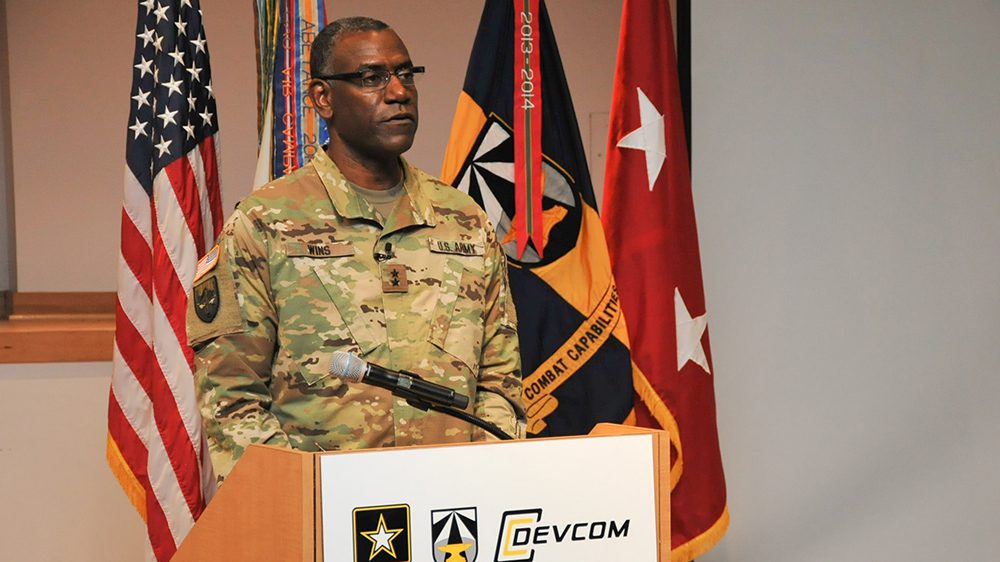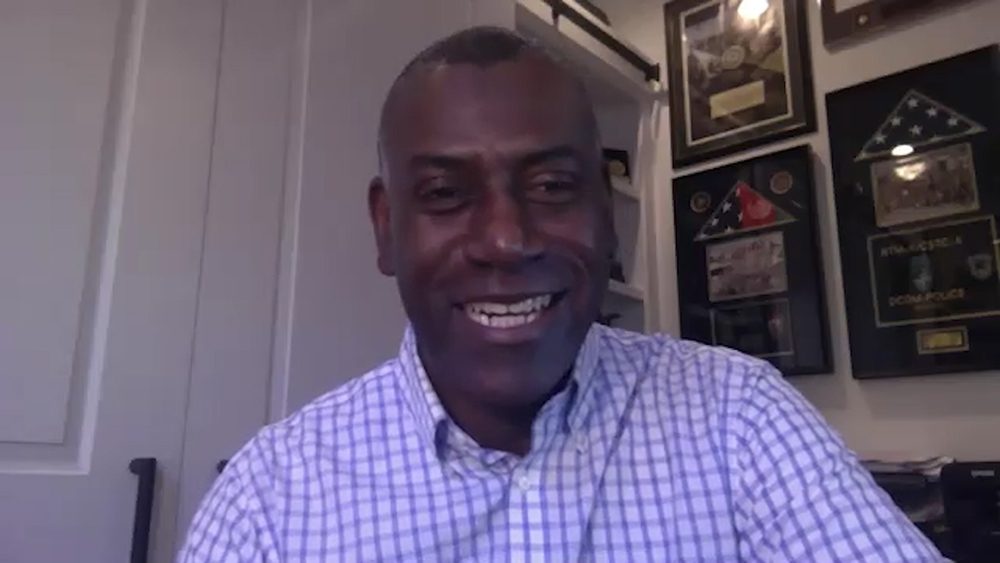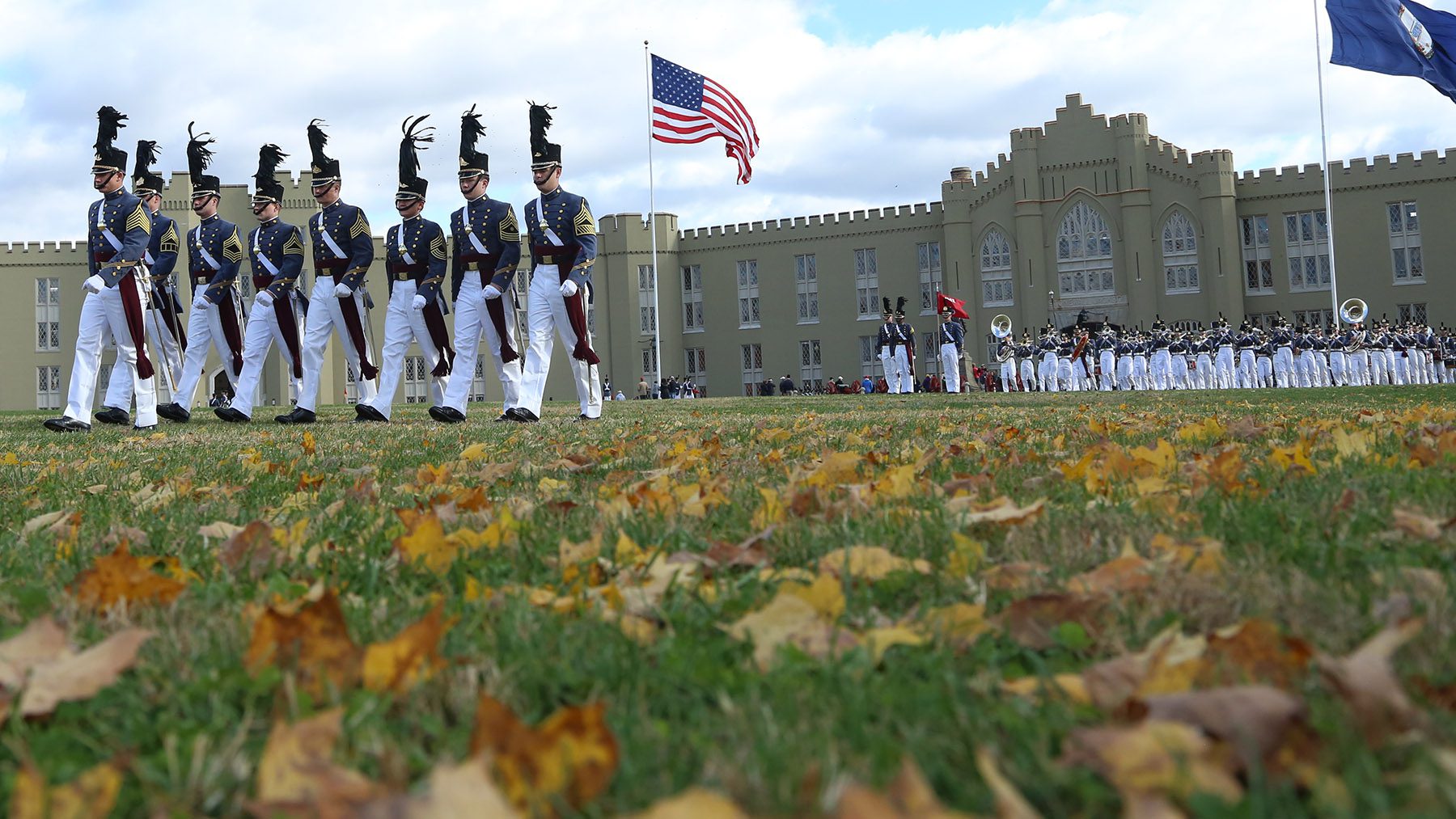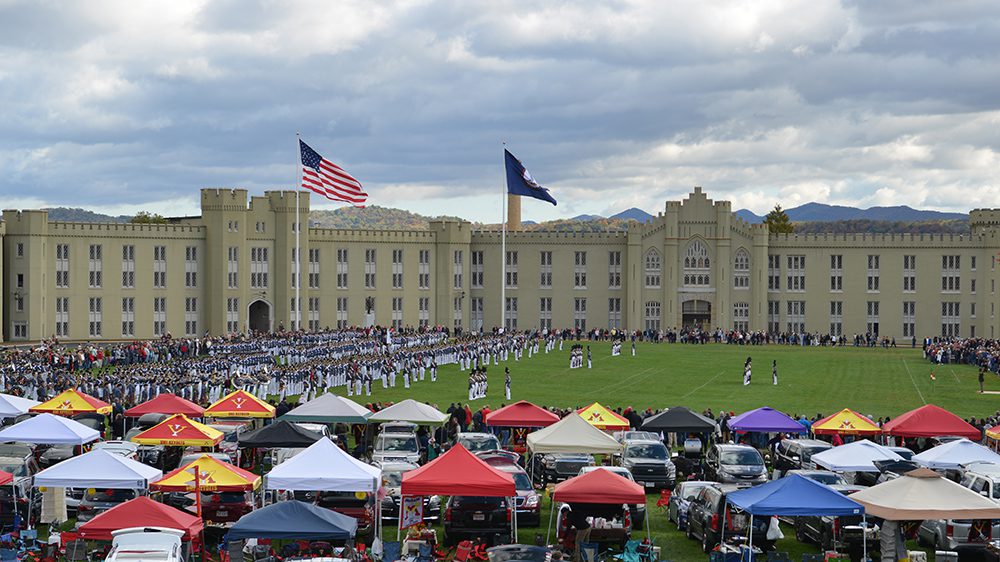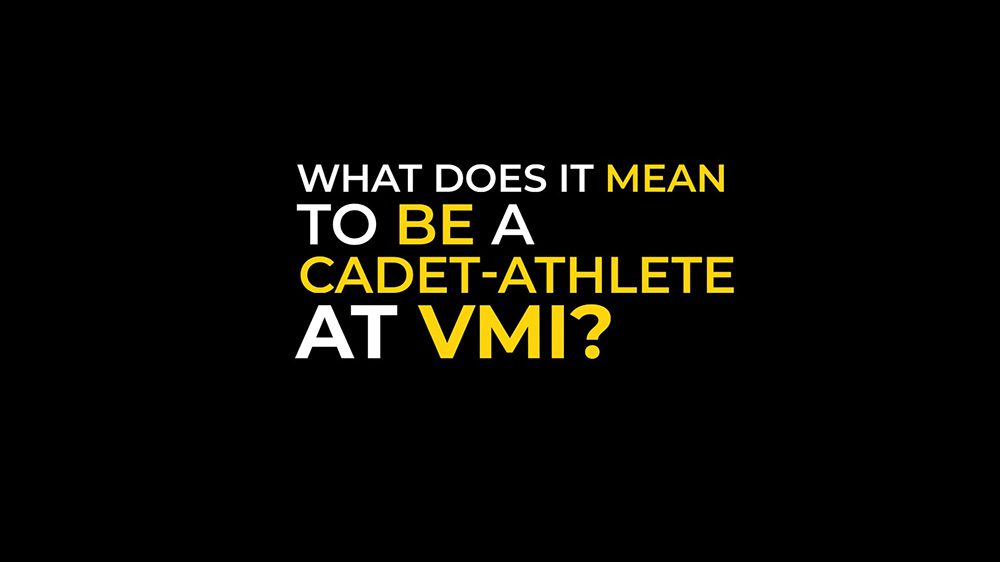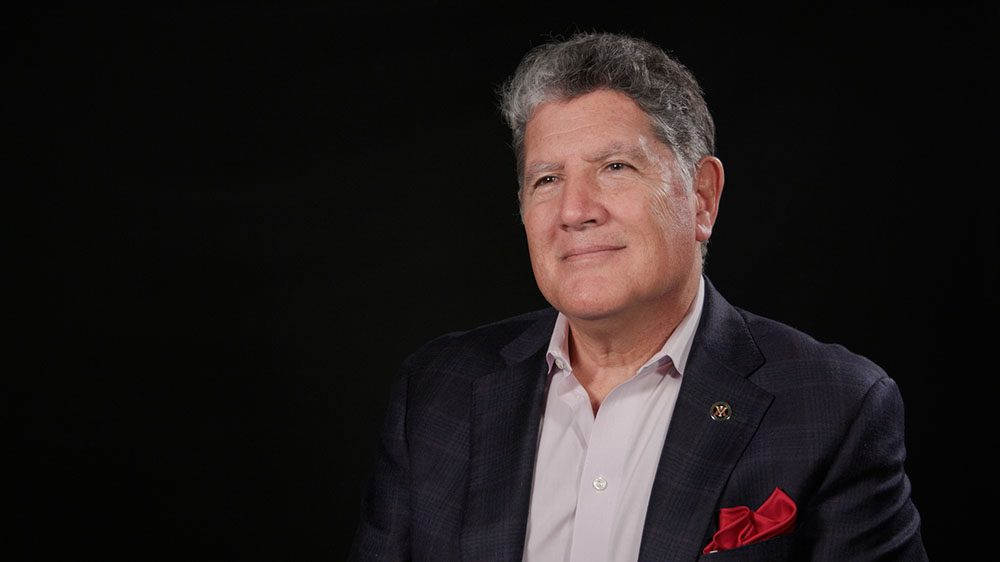Published: November 13, 2020
At approximately 7:30 p.m., Wednesday, Nov. 18, 2020, Maj. Gen. Cedric T. Wins ’85 will don his uniform, step out of Smith Hall, and head to Cameron Hall to address the Corps of Cadets as the interim superintendent of the Virginia Military Institute. The significance of this action does not escape Wins. While he carries himself with a settled focus “on the things at hand,” he is circumspect as he considers the first time he stepped foot on post some 39 years ago.
In fall 1981, Wins was, as he describes himself, “a lean, tall, pretty decent basketball player” from Maryland who had been recruited to play Division I basketball by both the U.S. Naval Academy and VMI. Wherever he went to school would be significant for his family, because young Cedric would be the first in the Wins family to attend college. He decided to turn down the U.S. Naval Academy’s offer, explaining, “A career in the military didn’t interest me.” Immediately afterward, his father had a talk with him.
“I’ll never forget it. He sat me down and said, ‘I’ve got to tell you, I was really, really stunned when you turned down an opportunity to go to Navy. But what I want you to understand is, these guys at VMI, they have been talking to you and recruiting you since you started your senior season. They have offered you a full-ride scholarship, so more than anything else, that’s an indication to me they have plans for you. If I were you, I would think real hard about what’s being presented to you right now, because I think it’s a great opportunity.’” A phone call to Coach Charlie Schmaus ’66 sealed the deal, and in late August 1981, Wins arrived on post with the rest of the young men who would become the Class of 1985. Looking back, he realizes it was one of the most important decisions of his life and set him on course for a successful future.
Wins’ mother was a big part of his decision, as well. “What you do for the love of a mother is significant.” He explains that his mother was proud he was taking on the challenges of the VMI system, squared away and in uniform, although she was not without her concerns as she got a glimpse of his introduction to the adversarial system when she and her husband left the post on that Matriculation Day.
Following his first day as a cadet, Wins said his mind was in a bit of a haze from everything the system throws at you: When to wake up, what uniform you wear, the same haircut for every cadet, the expectations to be where you should be, at the right time, with the right attitude—all expectations required of everyone in his rat class. At VMI, there is no obvious separation of who you may have been before you arrived. “I realized I was surrounded by a bunch of other people who were probably in a similar haze. We were all going through this stuff together.”
One way VMI has of getting the new cadets, or “rats,” to know people of dissimilar backgrounds and perspectives is that rats cannot select their roommates. Rooms are randomly assigned, and it is expected that they will figure out how to work together throughout their challenging rat year. Wins remembered, “Very quickly and from the first day, the system begins to teach you about a life focused on teamwork and a willingness to support others, whether you know them or not.
“When they put me in my room with my three rat roommates, two were there with me, and one was a football player who was at practice getting ready for the fall season. We were told by a cadre corporal to put away our belongings, everything folded and squared away and in its proper place, the whole nine yards. When we finished with our own items, the corporal said, ‘Your brother rat is not here, you are responsible for the success of each other, and you are going to put away his stuff, too.’
“So, there I am, folding the underwear and t-shirts of some guy I’ve never even met, making him a success. It turns out that this guy is Charles Rogerson ’85. To this day, he and I and my other roommates, Darren Sawyer and David Estes, as well as several other classmates, remain extremely close. I mean, we’re like brothers. And, starting with the Rat Line, we’ve been there to support each other through good times and bad times for our entire lives.”
